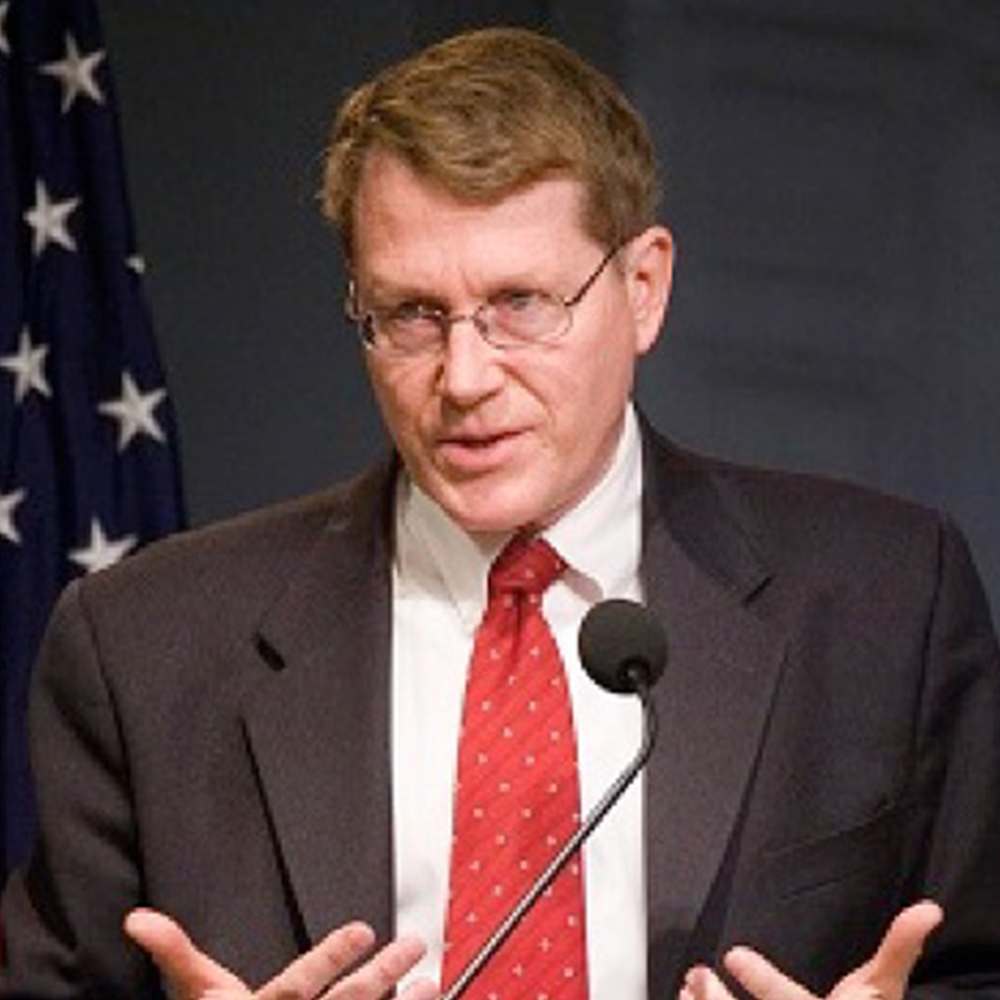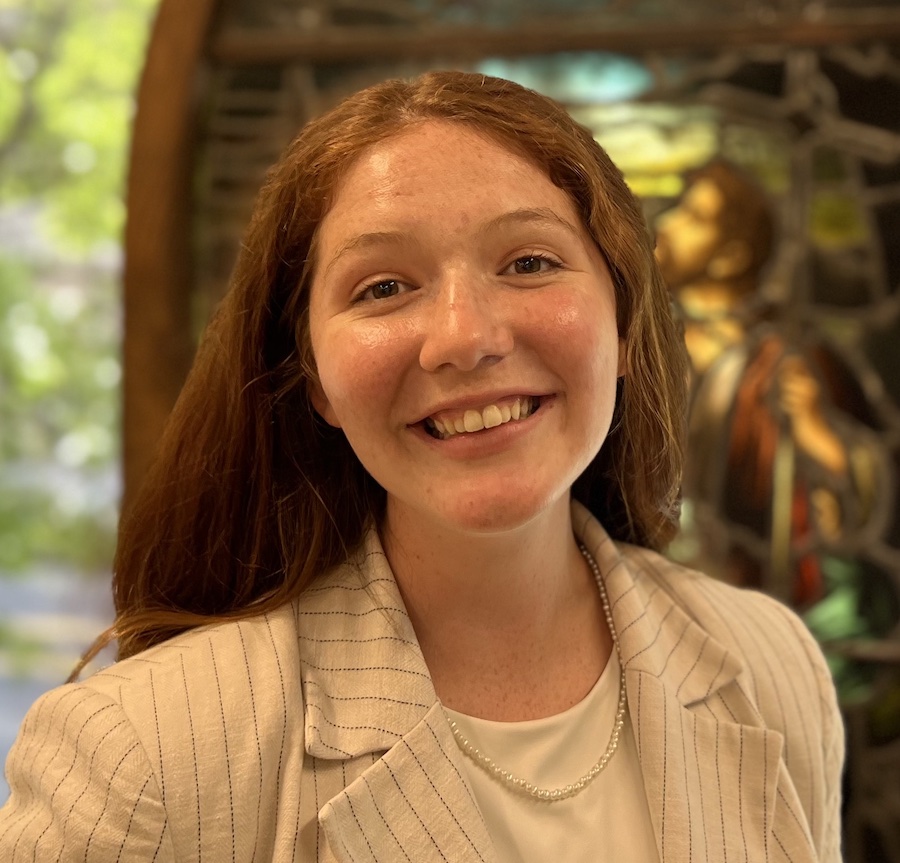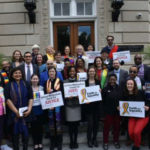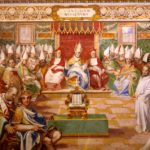The Institute on Religion & Democracy’s autumn Board of Directors meeting this week welcomed past IRD President Kent Hill to share about IRD’s founding document, Christianity and Democracy.
Video of Hill’s comments before the IRD Board can be found here via IRD’s YouTube channel and in downloadable podcast audio via IRD’s SoundCloud account, and I have compiled an edited transcript of Hill’s comments below.
Mark Tooley: We’re so glad my predecessor can join us. All of you are familiar with our Christianity and Democracy founding statement written by Richard John Neuhaus in 1981, and that was added onto after the fall of the Berlin Wall and the Cold War in 1991. It’s a wonderful statement. We still live by it, but maybe it’s time to make another amendment to it. We can have that conversation, but Kent Hill knows the history, so we welcome his insights and reflection. Thank you, Kent.
Kent Hill: I think it’s been 38 years since I’ve been at an IRD Board meeting. It’s a privilege to be with you. Mark asked me the question about the history of the statement and what involvement I had with it. Some of you may know that when IRD was founded in 1981, they chose to run the organization for the first 5 years without an Executive Director or President. A member of the board, Pen Campbell, handled the activities of the IRD Board. The manifesto, which dates to about 1981, was approved, edited, and written, mainly by Richard John Neuhaus and George Weigel, Michael Novak, and the key mainline Protestant folks who were on the board at that time. Ed Robb was the chair for many years, and so that’s how the history of it got started. When I came, I was put on the Board of Advisors that first year in 1981, when I was teaching at Seattle Pacific [University]. Then I moved across the country in 1986 to become Executive Director, and later they changed the title to President, where I served for 6 years. I inherited the manifesto and that was the key linchpin for all our activities and principles under which we did our work.
The questions Mark asked me were, “Reading back through the manifesto, how does it stack up to what we face in 2024?” and “Does the manifesto need to be changed?” etc. When I read it last night with that in mind, I came to the conclusion that the manifesto is as good in 2024 as it was in 1981. It’s a document of principles. The principles don’t change, but the context in which the principles were discussed have shifted quite a bit. And it’s that which I will address right now with a few comments.
The context was the threat of Communism, but more specifically, the failure of the mainline church world to address the problems of religious freedom often caused by Communism. IRD existed to take that task on. We were like David against Goliath. One of the big changes that has occurred in the last almost 40 years is that Goliath continued to decline, I think in some part, because of the challenge that we made to it. IRD does not mainly exist to deal with the problems of the National Council of Churches, the World Council of Churches. You still exist to deal with democracy, promote democracy, and most importantly, religious freedom. What’s changed besides the fact that the NCC and the WCC no longer exist as powerful forces out there?
The big difference is the religious climate in the United States. These 40 years have seen a significant acceleration of the secularization of American culture. The growth of the nones is what has changed. You might ask, “What difference does that make to what’s stated in the manifesto?” Interesting changes have occurred because of this post-Christian America or more secular environment we have moved into. And that’s this: the big change is the democracy which IRD always promoted, and the founding principles which IRD talked about, is much weaker in a post-Christian or more secular environment. The percentage of voters in America shaped by Christian values, who can go beyond narrow self-interest in their voting patterns, who can be generous, who can be inclined to be forgiving, who can resist the pressures for the State to move into the vacuum produced by the demise of religion, the defense of religious freedom, democracy (informed by a religious constituency), no longer exist. Which means it’s a tougher task. It’s not at all certain, that this experiment of democracy, without what Michael Novak talked about in the Spirit of Democratic Capitalism as one of the pillars, being a virtuous citizenry informed by Christians who believe in natural law. When that’s gone, all bets are off whether democracy, as we want to see it, will survive. IRD has to think about what it does to promote democracy and religious freedom in a tougher environment than in the past.
I think that’s the biggest difference. Obviously, Communism still exists and is still a threat, but that’s not the biggest problem we face. The biggest problem we face is under our very noses in Western societies.
Let me give you one example of how significant the change is over the last 30 or 40 years. In 1993, IRD was present when [U.S. Senators] Chuck Schumer (D-NY) and Edward Kennedy (D-MA) introduced the Religious Freedom Restoration Act, which passed the Senate 97 to 3 and passed unanimously in the House. It was signed by [President] Bill Clinton, and the purpose of the Religious Freedom Restoration Act was to ensure religious freedom in America. Fast forward 25 years to 2018: every single member of the Democratic majority of the House [of Representatives] passed the Equality Act, which is designed to mainstream LGBTQ rights, and which explicitly states that religious freedom in the Religious Freedom Restoration Act may not be appealed to if someone in the LGBTQ community charges that they have been discriminated against. That is the staggering change in 25 years. It’s not passed yet, but it’s the big agenda item for the progressives and many so-called conservatives or folks in the middle who are feeling more and more pressure. IRD has to figure out how to deal with the situation that the major threat to religious freedom would come from within our borders. That’s where we are.
What are my conclusions with respect to the manifesto and setting your agenda? The problem is not the manifesto. The manifesto anticipates a lot of this by talking about the essential principles. If those principles are under siege, then we’re going to have a problem. But that’s a foundational document I don’t think needs to be changed. What would be useful would be an additional document which would address how you are faithful to the manifesto in this new century. That would mean you address how you advance your agenda with nones and without the powerful force for creating virtuous citizens that is so critical for religious freedom and for democracy to survive. That’s the way I see it. I think the manifesto is great. It’s still good, it’s still valuable. But a document that might talk about the context in which the manifesto must be pushed forward in this century would be useful. That’s just some quick initial thoughts.
No comments yet






Leave a Reply